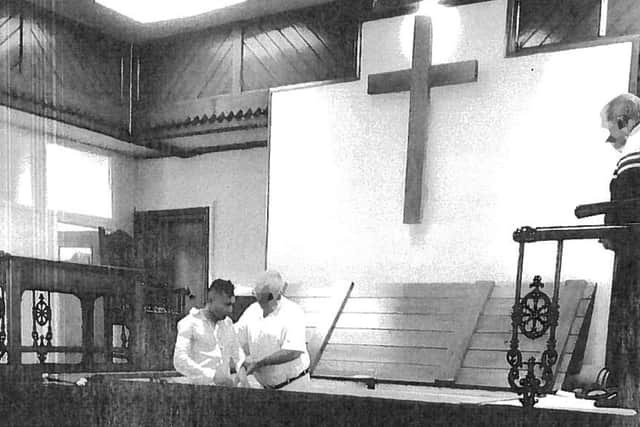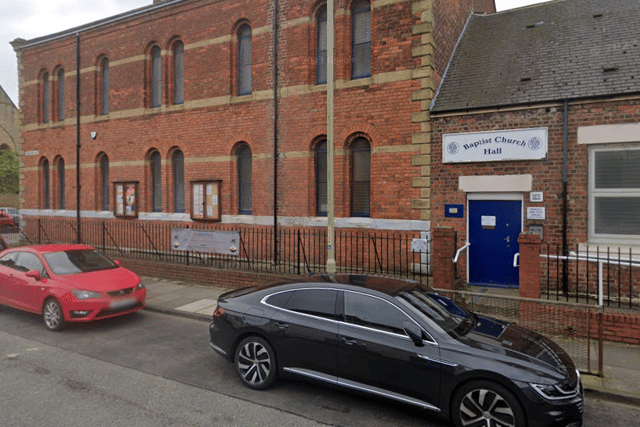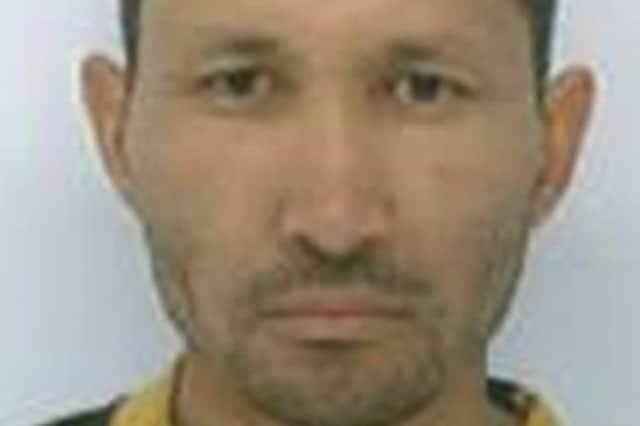Documents show a Jarrow church 'helped' chemical attacker Abdul Ezedi remain in the UK
and live on Freeview channel 276
London chemical attack suspect Abdul Ezedi was granted aslyum in the UK following a conversion to Christianity at a Jarrow church, according to newly released court documents.
Ezedi's body was found in the River Thames in February following a huge manhunt after he was suspected of attacking his ex-girlfriend, and her two children, with an alkali substance in Clapham, south London, in January.
Advertisement
Hide AdAdvertisement
Hide AdA number of previously confidential documents have revealed that Ezedi had been allowed to remain in the UK, even though he had a criminal conviction for sex offences.
Ezedi arrived in the UK on January 8, 2016, but his initial asylum claim was refused by the Home Office - with an appeal rejected the following year.


Then on January 9, 2018, he was given a suspended sentence at Newcastle Crown Court after he admitted to charges of sexual assault and exposure.
He was placed on the sex offender's register for ten years and ordered to carry out 200 hours of unpaid work.
Advertisement
Hide AdAdvertisement
Hide AdThe documents show that Ezedi began attending Grange Road Baptist Church, in Jarrow, in February 2016 and was "baptised by total immersion" on June 24, 2018 - just months after his conviction for sex crimes.
On March 19, 2019, Ezedi challenged the decision to allow him to remain in the UK again by lodging an appeal with the First-tier Tribunal - arguing he feared persecution in his home country because of his religion.


The newly released court documents show that this was granted and a hearing was heard in Newcastle on October 28, 2020.
At that hearing, lawyers representing Ezedi stated that he had "converted from Shia Islam to Christianity".
Advertisement
Hide AdAdvertisement
Hide AdThey added: “The punishment for this in sharia law, which is practised in Afghanistan, would be execution,” and that Ezedi “enjoys practising and sharing his Christian faith with others”.
The Home Office's legal team stated during the proceedings that the Government did not accept Ezedi’s conversion was “genuine and long-lasting”.
Government lawyers said that he was “prepared to deceive” and “use religion for his own ends” and had been unable to demonstrate a “clear understanding of Christian principles and beliefs”.
Advertisement
Hide AdAdvertisement
Hide AdDuring a ruling, dated on November 10, 2020, Judge WK O’Hanlon, said: “Having considered all of the evidence before me in the round, notwithstanding my concerns as to the honesty of the appellant (Ezedi) in relation to certain aspects of his account, I find that the appellant had been consistent in his evidence with regard to his conversion to Christianity.
“Having taken all of these factors into account, I am satisfied … the appellant has undergone a genuine conversion from his former Muslim faith to Christianity and that accordingly … would be at risk in the event of return to Afghanistan.


“I therefore allow his asylum appeal,” he added.
The judge stated that he found the "most compelling evidence" from Reverend Roy Merrin, a former ministry team leader at Grange Road Baptist Church.
Reverend Merrin stated that he had known Ezedi for four years and that he attended the church regularly.
Advertisement
Hide AdAdvertisement
Hide AdDocuments show that the Reverend told the court he was “aware of people who fraudulently claimed conversion with ulterior motives in relation to asylum but did not consider the appellant (Ezedi) was such a person”.
He also added: “This showed he (the Reverend) was alive to the possibilities of being used by asylum claimants but did not consider that appellant was such a case.”